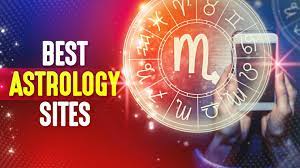Astrology, an ancient and captivating practice, has best astrologer in new york intrigued and inspired humanity for millennia. It’s the art of interpreting the movements and positions of celestial bodies, such as planets and stars, to gain insights into human affairs and natural events. Rooted in both astronomy and mythology, astrology has shaped cultures, guided decisions, and provided a lens through which individuals seek meaning in their lives.
The Foundations of Astrology
The origins of astrology can be traced back to ancient civilizations like the Babylonians, Egyptians, and Greeks, who observed the correlation between celestial movements and earthly events. The alignment of stars and planets was seen as a reflection of patterns in human lives, influencing personalities, relationships, and destinies.
Understanding Astrology’s Components
1. Zodiac Signs: The Zodiac, consisting of 12 astrological signs, marks the path of the Sun across the sky throughout the year. Each sign is associated with specific personality traits and characteristics, influencing individuals born under them.
2. Planetary Movements: Planets in astrology symbolize different aspects of life. For instance, Mercury relates to communication, Venus to love and beauty, Mars to passion and energy, while Jupiter signifies expansion and luck, Saturn represents discipline and responsibility, and so on.
3. Birth Charts: A birth chart, or natal chart, is a personalized map of the sky at the exact time of an individual’s birth. It reflects the positions of celestial bodies in relation to the zodiac signs and provides insights into one’s personality, strengths, weaknesses, and potential life paths.
The Role of Astrology in Modern Society
Despite skepticism and debates about its scientific validity, astrology continues to hold significance for many individuals worldwide. Its appeal often lies in its ability to offer guidance, reassurance, and self-reflection.



